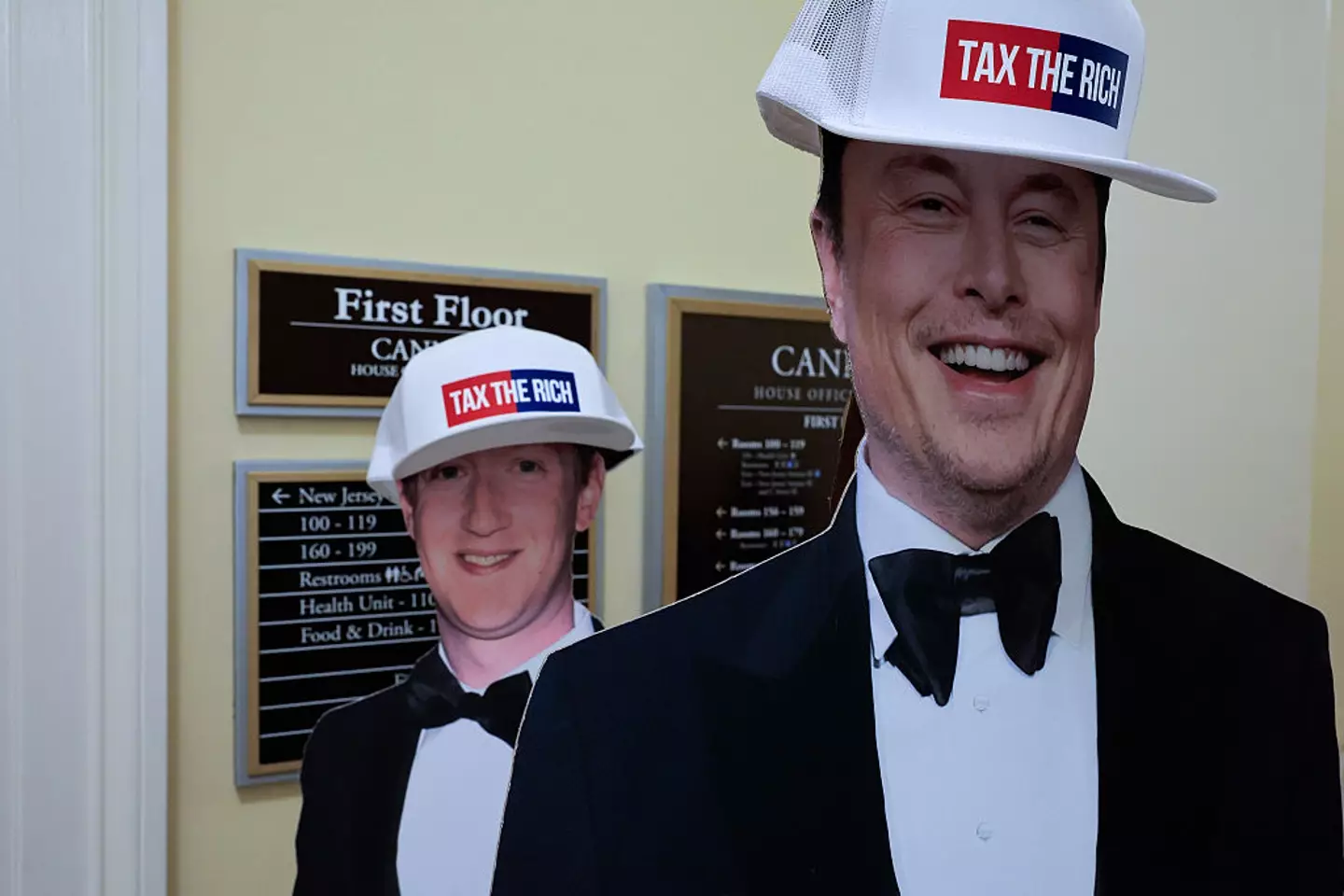
The United States homes a large proportion of the world's wealthiest individuals, yet a new study published by economists has revealed exactly how much the ultra rich actually pay in taxes each year, and it's a lot less than you might think.
While you're not doubt aware of how much people like Elon Musk, Mark Zuckerberg, and Jeff Bezos are worth thanks to exuberant rich lists, it's difficult to comprehend quite how much more well off they are than the 'average' American with numbers in the hundreds of billions.
According to data from NerdWallet, Musk's $386 billion net worth is just over 2 million times larger than that of the median US household's equivalent ($192,700), yet their actual taxation percentages are around the same, if not even lower in some cases.
Between financial loopholes that you see many big companies take advantage of and actual government bills that reduce the amount of tax that the wealthiest people in the country pay, there are plenty of ways that the rich can employ to simply keep getting richer.
How much do billionaires really pay in tax?
As reported by the Atlantic, a new study published by the National Bureau of Economic Research goes into great detail to try and work out how much America's richest billionaires are actually paying back into the government each year.
Advert
Getting hold of specific information is understandably difficult as the IRS keeps personal tax records confidential, but the researchers were able to receive IRS data files which contained anonymized listings of the richest 400 Americans by wealth instead of earnings, which equates to the top 0.0002 percent of the population.

The data reveals that the top 400 wealthiest Americans paid roughly 23.8% of their income to the government between 2018 and 2020, which is reduced from around 30% before the Tax Cuts and Jobs Act that was passed in 2017.
When compared to their total wealth, only 1.3% was paid in that period, which was also down from 2.7% in the stretch between 2010 and 2013 for the same people.
For comparison, these tax rates paid by the richest individuals were actually lower than the average amount paid by all American households, which goes against everything you'd expect for people who earn more in a year than most will earn in a lifetime.
How do billionaires avoid paying higher tax rates?
It isn't necessarily by chance that the richest people pay such a low tax rate in proportion to their wealth, as while the aforementioned Tax Cuts and Jobs Act implemented by Donald Trump in his first term certainly helped, there's a number of clever accounting loopholes that also reduce their eligibility.
First and foremost is the lack of actual taxable income that these people entitle themselves too, which explains the stories that you often hear about Sam Altman and Elon Musk not taking a salary despite holding some of the most powerful positions in the country.
Mark Zuckerberg, for example, only earns a 'base salary' of $1 – yes, you heard that right – at Meta, although he did also take home a $27 million compensation package too.

Most of these people opt to be paid out in stock options, both in their own companies alongside other businesses and 'pass-through' companies that have special tax rules, making it much easier to hold wealth without paying any tax.
Furthermore, there are countless loopholes that accountants take advantage of to make it seem like these people are taking a financial loss every year, resulting in a lower taxable income and less tax needing to be paid.
On-paper losses through deductions and exclusions such as depreciation reduced the taxable income of these billions by $33 million per year on average, leading economists to inform the Atlantic that taxable income is "no longer a good measure" of the "true profits" of the richest companies and individuals.
